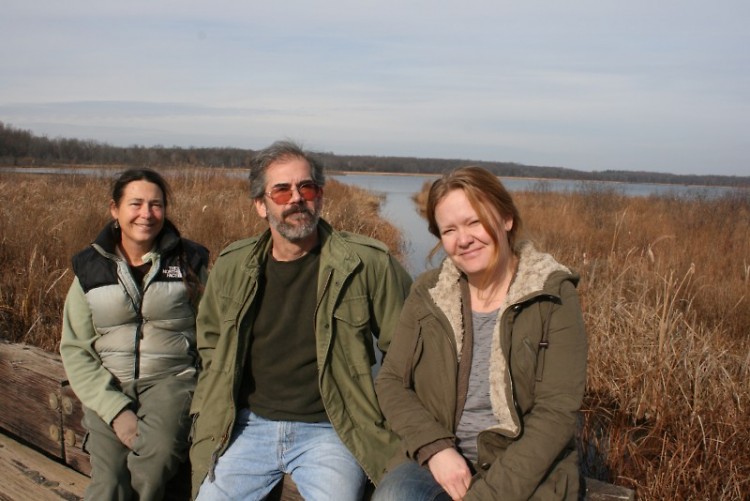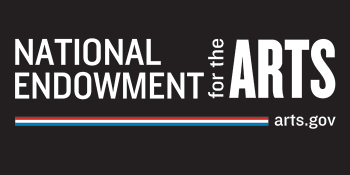The past year was an exciting one for Steve Losher, president of Michigan Land Air Water Defense (MLAWD), and he has no plans of slowing down in 2013. Carpenter by trade, Losher is finally putting his “25 years of pent up environmental angst” to work. Losher has recognized, researched and taken a stand against hydraulic fracking as a founding member of MLAWD, a non-profit organization composed of citizens from all types of backgrounds, in the hopes that people become involved and educated on the dangers of fracking.
Growing up in a wooded area, from a young age Losher learned to appreciate nature.
"[I loved to explore] the splendor that is the natural world. Knowing it’s there and knowing it’s protected means something, and I feel the same way about Michigan land,” he says.
Losher first became familiar with the “boom and bust industry” in May 2012 when he attended a public auction in Lansing. The Michigan Department of Natural Resource's Oil and Gas Leasing Auction was held to offer the mineral rights to 196,000 acres of state land to the oil and gas industry; many of them fracking companies. Right in front of his eyes, Losher watched as the untouched land of Barry county's State Game and Yankee Springs Recreation Areas, land he loves, was auctioned off for oil and gas development. Yet it wasn't sold without protest.
"Sounds of drums as protestors gathered and stood outside the building, banging on the windows to the rhythm of drums," were heard as Losher sat inside the auction room in Lansing. He saw both men and women, young and old, stand up and protest in the middle of the auction. Citizens who had entered the auction as guests and some dressed up to appear as private buyers were removed by MDNR conservation officers.
"Finally," he says, "I stood up too. Me and my 25 years of pent up environmental angst."
He jokes about that moment now, and the brief notariety of being the one protestor arrested at the May 8 auction.
"If you attended that auction or protested outside, you might remember me as the man yelling, 'We have every right to be here!' as I was escorted out of the building," says Losher. He was later arrested for disturbing the peace, and charged with a 4th degree misdemeanor, which was eventually lessened to a charge of impeding traffic, a civil infraction. The charge and the court appearances only ignited a fire.
Losher is animated as he expresses his concerns about horizontal hydraulic fracturing, ranging from the chemicals used in the process to the casings which supposedly safely contain millions of gallons of fluids pumped at 12,000 psi through miles-long well bores (to this, Losher says, "Look up Dr. Ingraffea at Cornell and his studies"), to the potential for methane to migrate into lakes and rivers and well water, to the rush to exploit every bit of land available.
“I’m frustrated at the confining nature of big business," says Losher. "I feel angry and morose.” But these feelings don’t bring him down for long, as he explains the mission of Michigan Land Air Water Defense, and why the people of Barry and Allegan counties, working to protect state land, believe in the principle of 'public trust.'
“MLAWD isn't trying to ban fracking, but rather raise public awareness…we want the DNR to follow it’s own rules,” Losher says as he describes the DNR's responsibilities and the agency's own guidelines which outline state lands, such as ecologicially sensitive areas and recreation areas, that are supposed to be protected.
Water is "of grave concern to the people of Michigan," Losher notes. "And these wells are using an average of 5-7 millions of gallons of water each time shale rock is fracked miles down in the Earth."
"Unfortunately, each well can be fracked multiple times in multiple directions," he says. In terms of water use, he offers an example to help quantify and qualify average water usage.
"A family of five would take 100 years to use 1 million gallons of water," says Losher.
Fracking is not limited to any specific areas either, he says. Land leasing and frack well operations are happening on private, agricultural, state forest and game land all around Michigan. MLAWD seeks to attack the industry with legal matters and find the missing links in the public trust doctrine.
Working with Michigan environmental attorney Jim Olson, MLAWD has filed a suit with the MDNR seeking to nullify the results of the May 8 and October 24 2012 auctions. As MLAWD's press release on the suit maintains, "by allowing this relatively new, untested technology to be deployed on, near or under State specially designated areas, without proper study and evaluation, the MDNR is failing to meet its legal duty to manage state owned minerals in a manner that protects and enhances the public trust."
“These jewels of the state represent only 2% of the state’s remaining 4.5 million acres. Why the rush?” Losher says. He refers to the industry's behavior as "rapacious" and "we believe, illegal."
"Following Olson's framework, we want the State to do what the people expect the state and the agencies charged with protecting state land to do, and that is, uphold the public trust," he says.
“If we can't do that, at minimum, I feel sorry for the human condition…this is beyond short sighted,” Losher admits. But the moment of "doom and gloom" passes as he changes gears, discussing MLAWD's progress and the research its members have done. Losher and others continue to use every day as a chance to educate people about the risks of fracking, and to encourage the public to take this opportunity to protect Michigan's public land, water, the ecosystem, and our communities.
The Rapidian, a program of the 501(c)3 nonprofit Community Media Center, relies on the community’s support to help cover the cost of training reporters and publishing content.
We need your help.
If each of our readers and content creators who values this community platform help support its creation and maintenance, The Rapidian can continue to educate and facilitate a conversation around issues for years to come.
Please support The Rapidian and make a contribution today.

